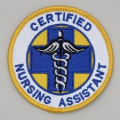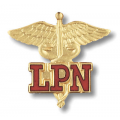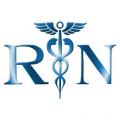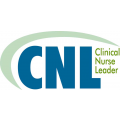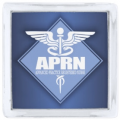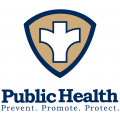Over 1.4 million certified nursing assistants (CNAs) are employed across the country. Nearly 70 percent of these professionals work in nursing care facilities and hospitals. The rest work at continuing care retirement communities, assisted living facilities for the elderly, home healthcare services, employment services, and specialty hospitals. The largest CNA populations are found in New York, California, Florida, Texas, and Pennsylvania.
Nursing roles and specializations
Nursing professions run the gamut, from one-on-one bedside care to complex organizational management. Below we've descibed the key aspects of both junior (CNA, LPN / LVN) and senior (RN, APRN) nursing roles. We've also profiled a range of popular specializations for nurses with advanced qualifications.
Registered nursing specializations
Advanced practice nursing roles
Nurse practitioners (NPs), nurse anesthetists, nurse midwives, and clinical nurse specialists are collectively known as advanced practice registered nurses (APRNs). According to the Bureau of Labor Statistics, almost half of these healthcare professionals work in physicians’ offices. Close to 30 percent of APRNs are employed at hospitals. The remainder work at outpatient care centers, postsecondary schools, and offices of other health practitioners.
Wound, ostomy, and continence (WOC) nurses specialize in three patient afflictions: (1) wounds resulting from injury, disease, or medical treatment; (2) ostomies, which are artificial openings created during operations like a colostomy, ileostomy, or gastrostomy; and (3) urinary and fecal incontinence, including any associated skin conditions. Nurses in this tri-specialty area are often members of acute care teams in hospitals. Some also work in long-term care facilities or home healthcare settings.
School nurses are registered nurses (RNs) responsible for treating students that become ill or sustain injuries during the school day. They are employed at all levels of education from elementary to college. School nurses can take vital signs, administer medications or first aid, record symptoms, and coordinate referrals to a healthcare provider. They treat staff members, perform health screenings, and oversee school health policies and programs.
Public health nurses are registered nurses (RNs) that specialize in promoting the health of entire populations, rather than one patient at a time. Public health nurses accomplish this by deploying knowledge in the nursing, social, and public health sciences. They identify individuals, families, and subpopulations who would benefit from health promotion or who are at risk of disability, injury, illness, or premature death.
A psychiatric-mental health nurse (PMHN) fills a specialist role within the practice of registered nursing (RN). These focused RNs work with patients, families, and communities to assess their mental health needs. PMHNs diagnose mental illness, develop treatment plans, and educate a patient’s family about the illness and the best approaches for coping. They also implement the nursing process and frequently evaluate it for efficacy. PMHNs work in mental health clinics, university health centers, correctional facilities, rescue missions, and substance abuse centers.
Pediatric nurses are registered nurses (RNs) that address the unique medical needs of children. They work in a variety of healthcare settings such as hospitals, critical care facilities, doctors’ offices, and community-based settings. Also called “certified pediatric nurses” or “CPNs,” pediatric nurses provide primary care services like examinations, health screenings, immunizations, school physicals, and treatment of childhood conditions.
Obstetrical nurses, also known as OB/GYN nurses or gynecology/obstetrics nurses, are registered nurses (RNs) who care for women during their reproductive years. Because the reproductive years begin during puberty, obstetrical nurses also care for tweens and teens. These skilled nurses perform annual gynecological exams, assist with labor and delivery, administer vaccinations, conduct diagnostic tests like mammograms, and educate women about birth control and sexual health. Some obstetrical nurses specialize in labor and delivery.
Nurse executives are registered nurses (RNs) that work on senior leadership teams at hospitals, health systems, home health agencies, nursing care facilities, ambulatory healthcare services, and schools of nursing. They design and direct processes for delivering care, developing the healthcare system, managing / educating staff, and handling the organization’s finances. Some nurse executives have clinical experience in a specific area. This makes them ideal candidates for nurse administrator positions – for example, at a children’s hospital or an adult rehabilitation center.
Neonatal nurses are registered nurses (RNs) that care for newborn babies. The neonatal period is defined as the first month of life, and neonatal nurses typically work with infants from birth until they are discharged from the hospital. However, neonatal care can last for months if the infant faces birth defects, malformations, infections, prematurity, or cardiac and surgical problems. In extreme cases, neonatal nurses will care for infants until two years of age.
Medical-surgical nurses care for patients with multiple surgical, medical, and/or psychiatric diagnoses. They work in a broad range of environments including hospitals, clinics, surgical centers, urgent care centers, ambulatory care units, nursing homes, and physicians’ offices. According to the Academy of Medical-Surgical Nurses (AMSN), this specialized area of nursing requires stellar skills in assessment, technical knowledge, organization, prioritization, and communication.

